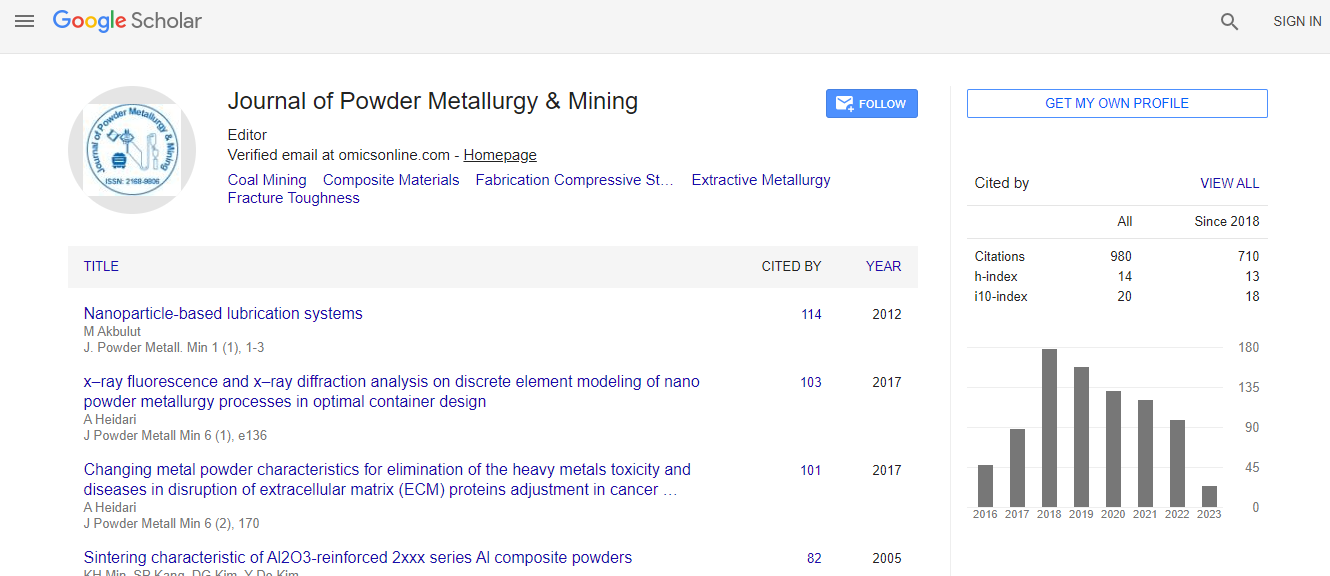Industrial Engineering 2016: Effect of summer weather conditions on the environmental impact of a power plant in the UAE- Zin Eddine Dadach-Higher Colleges of Technology
*Corresponding Author:
Copyright: © 2020 . This is an open-access article distributed under the terms of the Creative Commons Attribution License, which permits unrestricted use, distribution, and reproduction in any medium, provided the original author and source are credited.
Abstract
Abstract: The work investigates the effect of summer weather conditions on the environmental impact of an Open Cycle Gas Turbine in Abu Dhabi (UAE) using an exergo environmental analysis. These processes are used to suggest measures for reducing the calculated impact. Certain operational data are verified with simulation data using commercial software. In comparision to standard weather conditions, the summer weather conditions in Abu Dhabi decrease the overall exergetic efficiency of the plant by 4.3% and increase the total environmental impact per generated KWh by 7.9%. The extension of a heat recovery steam generator could increase the net power output and decrease the total environmental impact of the plant. The main contributor to the environmental impact of exergy destruction is the combustion chamber. Summer conditions increase this impact by 21.5%. The compressing has the second highest environmental impact, increased by 14.6% for summer conditions. A operation control system for continuous measurement of exhausted O2 and CO can help to reduce the excess air and, consequently, the associated environmental impact. It is also decrease the power required by the compressor. At last, a cooling system for the ambient air may also help to increase the power output of the plant by decreasing the power required by the compressor.
This Power generation plants play a decisive role in the economic growth of the UAE. However, these facilities contribute greatly to the annual CO2 emissions of the country. In 2013, power plants were responsible for about 33% of the 200 Million tons of the total CO2 emitted in the country. The typical weather conditions used for the design of the gas turbines are 288 K, sea level atmospheric pressure and 60% relative humidity. Hence CO2 emissions from power generation plants increase during the summer months because of the negative effect of higher ambient temperatures on their performance. This is linked to the simple fact that the net power output of a plant will decrease because the compressor will require more power to compress air at a higher temperature. Rahman et al. studied the effects of the temperature of ambient air on the performance of a gas turbine in Malaysia. Their results showed that its energy efficiency and power output decreased linearly with the increase of the ambient temperature. Kakaras reported that the gas turbine output and efficiency is strongly related to the ambient air temperature. Depending on the gas turbine type, the ISO-rated power output is reduced by a percentage between 5 and 10 percent for every 10 K increase in ambient air temperature. At the same time, the specific heat consumption increases by a percentage between 1.5 and 4. Altayib conducted an exergetic analysis of a power plant in Makkah (KSA) consisting of 18 gas turbine units. Based on his investigation, the energetic and exergetic efficiencies of the plant increased by 20% and 12%, respectively, when the compressor inlet temperature was cooled down by 10 K. Okechukwu and Imuentinyan conducted an exergetic analysis of a 335 MW natural gas-based gas turbine power plant in Nigeria. The collected data showed that the combustion chamber had the largest exergy destruction percentage, equal to 54.15%. This effect of ambient temperature variations between 294 K and 306 K were also investigated. The authors recommended that a cooling system should be installed in order to decrease the effects of the high temperature of ambient air on the performance of the plant. The effect of ambient temperatures lower than the standard temperature (288 K) on the performance of power plants has also been studied.
The main objective of this study was to investigate the effect of summer weather conditions on the environmental impact of an Open Cycle Gas Turbine in Abu Dhabi (UAE). The operation of the power plant was evaluated using exergetic and exergoenvironmental analyses. The analyses were followed by recommendations on how to enhance the exergetic efficiency of the power plant and, in this way, decrease its environmental impact. It was found that summer weather conditions decreased the net power output of the power plant by 4.9% and its exergetic efficiency by 4.3%. Moreover, summer conditions increased the total environmental impact of a kWh of electricity (including exergy loss) by 7.9%. To improve the environmental operation of the plant, thermodynamic inefficiencies, associated with the exergy lost via the exhaust gases and the exergy destruction of the plant components, must be reduced. The significant exergy of the exhaust gases increased the total environmental impact of the power plant by 30.9%. Summer weather conditions enhanced this contribution by 2.6%. In order to take advantage of the high temperature of the exhaust gases (886 K), the addition of a heat recovery steam generator (HRSG) to generate steam is recommended. The generated steam can be further used in a Ranking cycle to produce additional electricity. The goal is to decrease the total environmental impact of the overall power plant through the increased electricity. It was also seen that the combustor had the highest environmental impact of exergy destruction, while summer weather conditions increased this impact by 21.5%. It is suggested to invest in a process control system based on a continuous measurement of both O2 and CO leaving the combustor. This could provide the needed information for more effective combustion with lower environmental impact through the minimization of the excess air. Lastly, the compressor had the second highest environmental impact of exergy destruction and summer weather conditions increased this impact by 14.6%. Future work could involve a thermoeconomic optimization to reveal the best cooling system (e.g., fogging cooling) to decrease the negative effect of high ambient temperatures on the exergetic efficiency of the component.
Note: This work is partly presented at 3rd International Conference and Exhibition on Industrial Engineering, November 14-15, 2016 Dubai.

 Spanish
Spanish  Chinese
Chinese  Russian
Russian  German
German  French
French  Japanese
Japanese  Portuguese
Portuguese  Hindi
Hindi 

